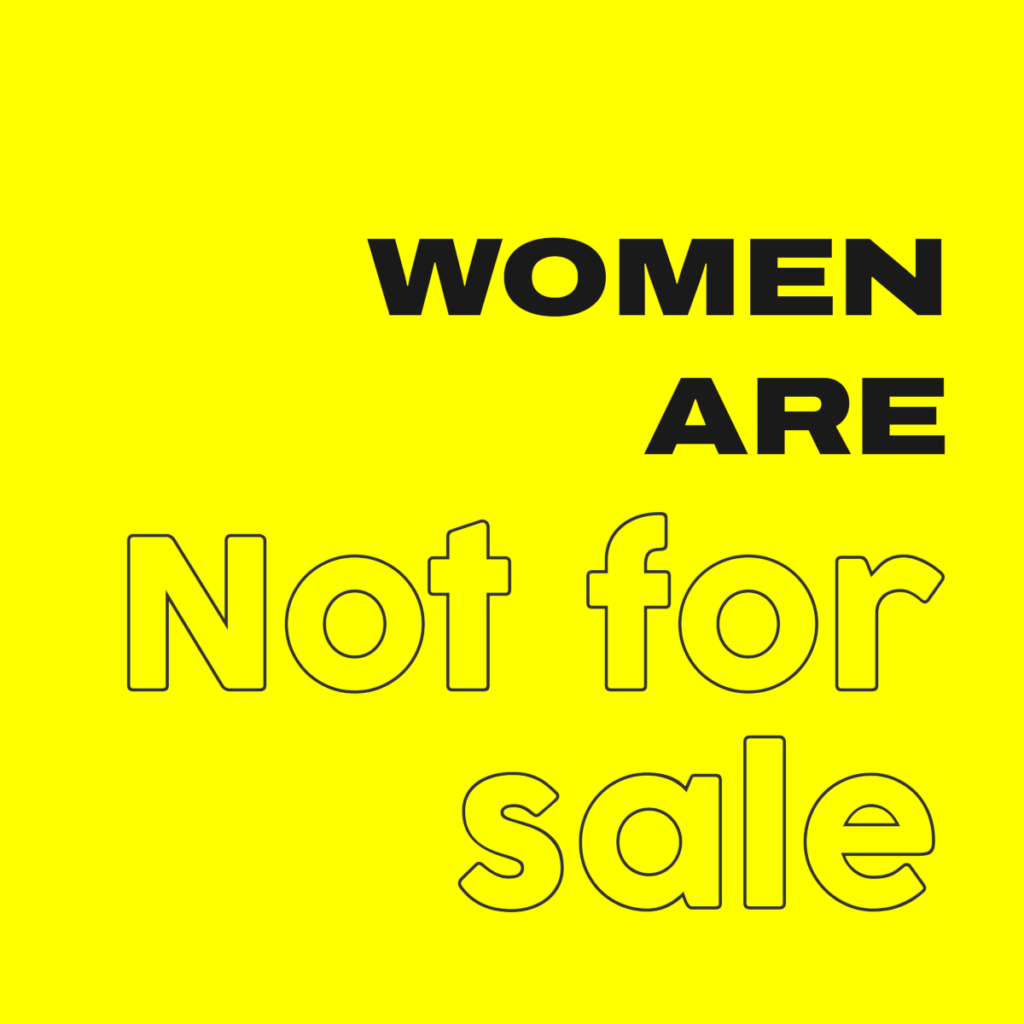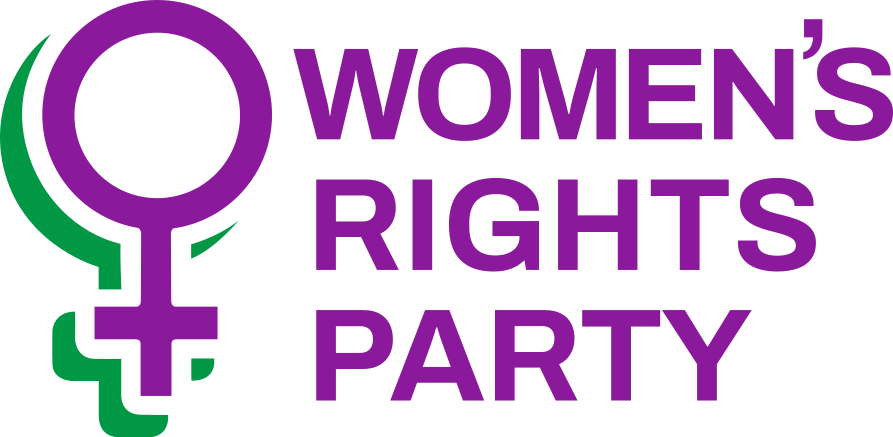It is 20 years since the passing of the Prostitution Reform Act 2003, which fully decriminalised prostitution in New Zealand.

The Women’s Rights Party, NZ and the Women’s Declaration International-NZ have made a submission to Reem Alsalem, the UN Special Rapporteur on VAWG, for her report to the Human Rights Council on prostitution and violence against women and girls.
Thank you for the opportunity to make this submission.
The Women’s Rights Party New Zealand is a registered political party that promotes the sex- based rights of women and girls in New Zealand.1
The Women’s Declaration International promotes the sex-based rights of Women and girls in accordance with the principles of the Convention on the Elimination of All forms of Discrimination Against Women.2
Both organisations stand against all forms of violence against women and girls.
New Zealand legislation
It is twenty years since the Prostitution Reform Act 2003 was passed, which fully decriminalised prostitution in New Zealand.3
The Women’s Rights Party, New Zealand and the Women’s Declaration International – New Zealand are concerned that women’s rights and safety are not being upheld under the current legislation.
The evidence does not show that the “New Zealand model” is working to protect the rights, welfare and safety of women and girls, or to protect them from violence and harm, even though this was a stated purpose of the 2003 legislation.4
A 2008 Review by the Ministry of Justice showed that decriminalisation has not stopped violence against women in postitution. This is explained in a 2016 report from the Stop Demand Foundation, from which we include material in this submission. We attach a copy of the report.5
A promised 2018 Review from the New Zealand Government never materialised.6
An in-depth review in 2023 revealed similar concerns, and pointed out that brothel inspections, which were mandated by the legislation are not happening.7
We would like a full review of the legislation, including the consideration of alternatives to the current full decriminalisation approach. We urgently call for resources to be provided for women to exit prostitution.
In 2016 the Stop Demand Foundation noted that despite decriminalisation, violence against women in prostitution continues to be rife.
In the attached copy of their report, they note: 8
- Prostitution has its roots in gender inequality.
- Prostitution is a highly gendered system, which facilitates and perpetuates harm and violence by men towards women.
- Globally, violence towards women in prostitution is rife.
- Decriminalisation has not prevented women who are prostitutes from being viciously murdered.
- Women cannot be protected from the violence and harms that are inherent within prostitution. Women can only be protected by dismantling the sex trade.
- While stigmatisation against prostitution largely persists, removing the stigma of illegality through decriminalisation has paved the way for desperate women to proceed down a potentially destructive path from which it can be difficult to recover.
- Decriminalisation has removed some of the associated stigma amongst our youth, including girls as young as 13, as well as the abusers who rape and sexually exploit them.
- Prostitution is not “work like any other.” No industry that is inherently predicated on gendered violence, inequality and degradation should be elevated to the status of work. 9
They note, specifically, that in a 12-month period following decriminalisation, a Ministry of Justice Report (2008) found:
Of women engaged in street prostitution:
- 39% had been threatened with physical violence
- 31% experienced refusal by client to pay
- 24% had money stolen by a client
- 13% had been physically assaulted by clients
- 11% had received abusive text messages from clients
- 10% had been held somewhere against their will
Of women engaged in the managed indoor sector (e.g. brothels) – 10% had been physically assaulted by client:
- 36% had received abusive text messages from clients
- 16% had been threatened with physical violence
- 12% had experienced refusal by clients to pay 10
Stop Demand summarises the impacts of decriminalisation of prostitution:
- it is luring desperate young women, from New Zealand and overseas, into prostitution.
- it has led to a rise in child prostitution.
- it has not prevented murders of women in prostitution.
- it has not prevented other forms of violence against women in prostitution.
- some women are forced to operate in unsafe and slave like conditions where often the only redress is through the Employment Court.
- it has led to “bargain-basement” sex for sale prices
- it has not deterred unsafe sex practices.
- it continues to entrench gender inequality.
- it has led to an increase in unlicenced brothels. it assists traffickers by removing a major obstacle within prostitution, its illegality. • it has increased sex tourism.11
A recent evidence-based review by Auckland researcher Tony Pitt and UK-based Helen Johnson from Stand Against Sexual Exploitation (SASE) highlighted several significant concerns:
- Increased numbers of prostitutes.
- Health and safety violations – and the reality of violence.
- Low rates of reporting and prosecuting violations.
- The black market, including internal trafficking.
- Lack of support for exiting the industry.
- Brothel inspections: are mandated but not happening. • Failure to implement recommended changes. A review of the law reform in 2008 made 28 recommendations, however only 11 have been implemented12
There has been pressure in New Zealand to repeal s19 of the Prostitution Reform Act which bans temporary Visa holders from working in the sex industry.13 We strongly oppose repeal of the provision, which would amount to the encouragement of international trafficking.
Already, in New Zealand, many girls enter prostitution at a very young age, and may be homeless, having fled violent homes. This is often a form of domestic trafficking.14 15
The Women’s Rights Party is also concerned that pornography, which includes filmed prostitution, rough sex, strangulation, other forms of violence, and sexual abuse, sends a message that such violence and abuse of women is acceptable.
Some personal stories from survivors of prostitution
These stories illustrate the vulnerability of the young women, the lack of meaningful choice or consent, the violence and rape inherent in prostitution, the child abuse, and the fact that decriminalisation did not stop this and in some ways may have worsened it.
Michelle Mara
After decrim, nothing changed. The police had never bothered us anyway. If they were going to check, we always got a heads up. I saw a cop maybe twice.
But it also did change. I felt less safe. I didn’t know what it was at the time. But looking back it was a shift in the structure. More responsibility was on us.
After decrim there were fees for everything and no mercy. The sense of solidarity was gone between the girls because we worked ‘to appointment.’ We passed like ships in the cold hard daylight. No music, no illusion. Legal was hell.
Since decriminalisation was introduced in 2003, the only illusion that’s left is the one women now tell themselves – that it’s real legitimate work. We know it’s not but that’s all that’s left to throw at the world. No woman in the sex trade will be able to say otherwise because you have to survive, and anyone who tries to say you are a victim is attacking the illusion. The vital illusion.16
Chelsea Geddes
I am one of those women who are said to be here by choice. No one person groomed me into this choice, granted I was underage when I was first faced with this choice but it was still my own ‘choice’ as you define the word.
That element of choice didn’t make the experiences I have had over the years in the industry and with johns any different to the experiences that someone trafficked or tricked into the industry by a Romeo would have had with those same johns.
And the fact that a woman’s choice is unequal to a man’s choice in this society is why prostitutes are mostly women and girls, and why johns are nearly always men, and why pimps put their money behind the ‘feminist’ “It’s a woman’s choice” line in media and advertising, and it’s why we need feminism at all.17
I wanted to stay in school, and I needed an adult to take me in permanently… A school friend introduced me to Brian…Brian would later be convicted of 47 charges related to sexual assault against 14 boys aged 9-16. I was only 16 at the time of his arrest, but somehow didn’t factor as a victim of rape and abuse by this man, because without him I was homeless. I was without parents and had nowhere to go.1819
Ally-Marie Diamond
My very first client was obese and sweaty. As we walked in the room and he got undressed, and stepped into the shower, I had to stop myself from gagging. The smell, the sweaty, crusty stench filled my nostrils, and as I took a breath in, I could feel my stomach contents hit the bottom of my throat. Not long after he was out of the shower, he picked me up and threw me across the room, yelling I was nothing but a useless black bitch, who couldn’t even get him hard. He slapped me with so much force, the sting on my skin bought me to tears but I fought them back, not wanting to show any weakness.
Sex work’ is a glorified term for paid rape! Those men never paid me for my time or company. They paid to fuck me in every single hole they could find, even when I said no. Getting fucked 20 times or more a day is NOT Work. This is terrorism against women. A sustained international attack on vulnerable women, girls, children.20
Conclusion
There is strong evidence that decriminalistion has not worked in New Zealand to protect women and girls from violence and harm. Reviews of the 2003 legislation and testimony from survivors suggest that violence and harm may be inherent in prostitution.
We call for a new review of the New Zealand legislation, to assess its success in protecting women and girls from violence, harm, exploitation, and in promoting their health and welfare. The review should include a consideration of Nordic/Equality models from overseas which prosecute those who benefit from the exploitation of prostitutes but do not prosecute the prostitutes themselves and instead, assist them to exit prostitution.
Recommendations
- Fully review the effects of decriminalisation, including the testimonies of women who have exited prostitution.
- Include in this review, a review of the effects of the Nordic/Equality model in countries such as Sweden, Norway, France and Israel.
- Effectively promote pay equity between the sexes and provide full financial support to women who become mothers.
- Enforce the inspections of brothels mandated by the current law. • Fully fund exit programmes and employ women who have exited prostitution to help run these programmes.
- Do not change the law to allow women to enter the country in order to be part of the sex trade here.
Jill Ovens, Co-Leader, Women’s Rights Party, New Zealand
Janet, New Zealand Country Contact, Women’s Declaration International
- https://womensrightsparty.nz ↩︎
- https://www.womensdeclaration.com/en/declaration-womens-sex-based-rights-summary
Convention of the Elimination of All Forms of Discrimination Against Women ↩︎ - Prostitution Reform Act 2003 ↩︎
- ibid 3.Purpose ↩︎
- Submission on Prostitution to UN Women from Stop Demand Foundation. ↩︎
- #WDI FQT AUS/NZ Michelle Kelly ‘Why the New Zealand Prostitution Law Harms Women in the Sex Trade’ ↩︎
- https://familyfirst.org.nz/2023/06/25/prostitution-law-review-benefits-exaggerated-shortcomings ignored-denied-or-hidden/ ↩︎
- Submission on Prostitution to UN Women from Stop Demand Foundation. PDF attached
↩︎ - Submission on Prostitution to UN Women from Stop Demand Foundation pages 2-5
↩︎ - ibid, Appendix A, p7. ↩︎
- ibid, Appendix B, p9. ↩︎
- https://familyfirst.org.nz/2023/06/25/prostitution-law-review-benefits-exaggerated-shortcomings ignored-denied-or-hidden/ ↩︎
- Migrant sex workers ‘afraid’ of reporting abuse, citing fears of deportation from New Zealand | Stuff ↩︎
- https://wahinetoarising.nz/survivor-stories/new-zealands-reality/
↩︎ - https://nordicmodelnow.org/testimonial/ally-marie-diamond/ ↩︎
- https://wahinetoarising.nz/survivor-stories/new-zealands-reality/ ↩︎
- https://nordicmodelnow.org/testimonial/olivia/ ↩︎
- https://wahinetoarising.nz/survivor-stories/new-zealands-reality/ ↩︎
- https://www.youtube.com/watch?v=Kk3Xcuds6X0&t=1063s ↩︎
- https://nordicmodelnow.org/testimonial/ally-marie-diamond/ ↩︎
